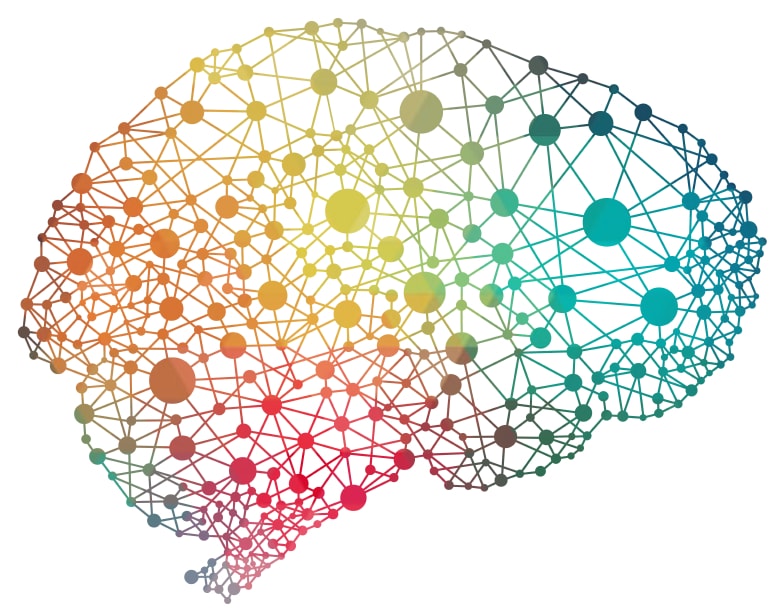How Is Cognitive Dysfunction Linked to Pain?

It is no secret that we cannot think clearly when we are in pain. The brain reacts in a certain way when experiencing pain – pain is not only a message from the body to the brain, but it kicks certain emotions into autopilot, while actively hindering you from thinking straight or performing complex tasks. When pain is at its worst, your thoughts are chaotic. You experience what is basically best described as cognitive dysfunction – also known as “brain fog”.
What is Cognitive Dysfunction?
Cognitive dysfunction is a condition from a myriad of diseases, environmental factors, and genetic conditions. It is a decline in a person’s cognitive abilities, or a loss of intellectual capability, even if only temporary.
As “brain fog” implies, cognitive dysfunction is diagnosed by a marked decrease in cognitive ability, especially versus the norm. When testing for cognitive deficiency in patients with chronic pain, researchers created a control group and a group of patients, all with similar backgrounds in terms of education, and tested their cognitive abilities through IQ tests, memory tests, and more.
Unlike certain diseases that target a specific part of the brain, cognitive dysfunction is a symptom of a condition that blanketly decreases a person’s ability to think. Pain is one such condition.
What is Pain?
Pain is all about thinking – after all, it is all in your head. But that does not make it any less real. In fact, pain connecting to your brain means it is about as real as something can be. Understanding pain can give you a clear insight into why pain is commonly linked with cognitive dysfunction. It can even give some people clues as to how to better regulate their pain.
When the brain experiences pain, it is typically because certain brain cells – called nociceptors – are transmitting a “noxious” feeling, noxious basically meaning bad. This is due to a series of things, things that make us feel pain as a basic defensive response.
Anything from being burnt, experiencing spontaneous muscle cramping, receiving sharp or blunt trauma, or even an emotional blow on par with a breakup or disinheritance can be enough to cause your nociceptors to make you experience pain.
This is a defensive mechanism – a strong reminder from our brain to not do that again, to preserve our life.
Why Chronic Pain is No Ordinary Pain
Pain is experienced subjectively and can only be described in a person’s own words. Factors such as mood and even culture affect this experience as well.
Everyone has experienced pain, from mild discomfort to severe distress. Yet severe pain will always trigger a person’s survival instincts, including their fight-or-flight response. It is not uncommon for pain to send someone into a fit of rage or send a dosage of adrenaline through their system. As such, it is normal to assume that when you are experiencing pain, you cannot think properly.
Yet different from this acute pain, chronic pain is any pain that lasts longer than 12 weeks, or approximately three months. Chronic pain due to a wide array of diseases, both physical and mental.
It can be attributed to anything from surgery and injury, to genes and brain disorders. A professional creates a diagnosis, after considering all the factors and circumstances of your case.
How Chronic Pain Is Different
Regardless of the cause, however, chronic pain is unique in the fact that it simply does not go away like acute pain does. When you receive a blow to the head, your head will hurt for a while. This is acute pain. The area around the damaged tissue will be tender and sensitive, as this is part of the body’s defense mechanism – to prevent anyone from further damaging that area. Yet after a while, the pain passes.
If you are the subject of a specific pain repeatedly, you develop a tolerance to it. This is what stretching is. Studies show that stretching does not impose a physical change to the body’s tendons or musculature. Rather, it simply affects the brain’s pain tolerance and stretch tolerance. This temporarily increases your ability to stretch beyond normal limitations due to repeated stretching.
Chronic pain, however, is different. People with chronic pain experience a change in the way the spine, nerves, and brain process pain. Whatever the cause of their condition, it has effectively warped the way they experience pain. This means that it potentially does not get “easier” with time, unless treated accordingly. In some cases – such as fibromyalgia – it can get actively worse with time.
Exploring the Cognitive Consequences of Chronic Pain
Living with chronic pain introduces several challenges that affect a person’s ability to think, leading to cognitive dysfunction. For one, the pain itself can present difficulties, acting as a frequent source of distraction and irritability. There is also the correlation between chronic pain, and negative thinking, as well as mental conditions such as anxiety and depression.
These conditions, in turn, actively worsen the effects of chronic pain by amplifying the experience. Research has also shown that, on top of pain, episodes of depression frequently limit a patient’s cognitive abilities, keeping them from thinking straight or performing well on tests of verbal and spatial memory, attention, and executive functioning.
Several studies show that chronic pain is not only a factor in causing brain fog within individuals, but it can amplify existing factors that attribute to cognitive decline, including mood and age.
Young adults with chronic pain experienced a much lower degree of cognitive dysfunction versus aging patients, stressing the importance of adequate and effective treatment to lessen the impact of chronic pain on a patient’s quality of life.
Improving Cognition in Patients with Chronic Pain
Chronic pain directly affects cognitive ability, regardless of a person’s perception of said pain culturally. For example, certain cultures are less likely to speak about pain or address it with less importance than Western cultures. They also report a higher pain tolerance. Despite this, studies performed on both Western adults and Middle Eastern adults finds similar cognitive deficiencies.
That is not to say that mindset does not affect cognition. Cognitive rehabilitation is possible for patients with chronic pain, but it must concern itself with addressing the pain and the patient’s mood and emotional state, to alleviate the brain fog caused by the undue stress of chronic pain.
Stress and emotional pain – from shame or anger due to certain limitations imposed by the pain, to depression and anxiety from feeling isolated – can amplify the effects chronic pain has on a person’s intellect.
Addressing these issues, as well as sleep disturbance and fatigue, is of great importance. If you are experiencing constant cognitive dysfunction and emotional distress, seek professional help. Only after a thorough assessment of your condition and circumstances can professionals recommend specific treatments.


